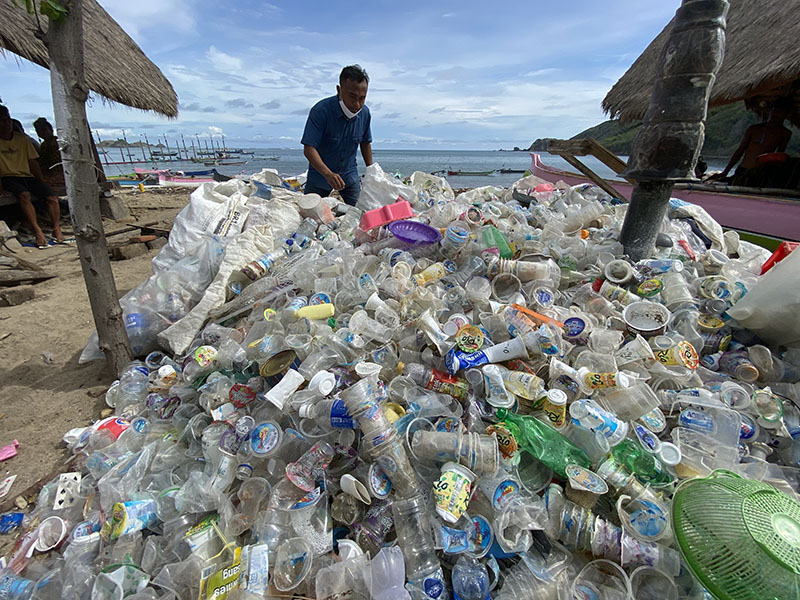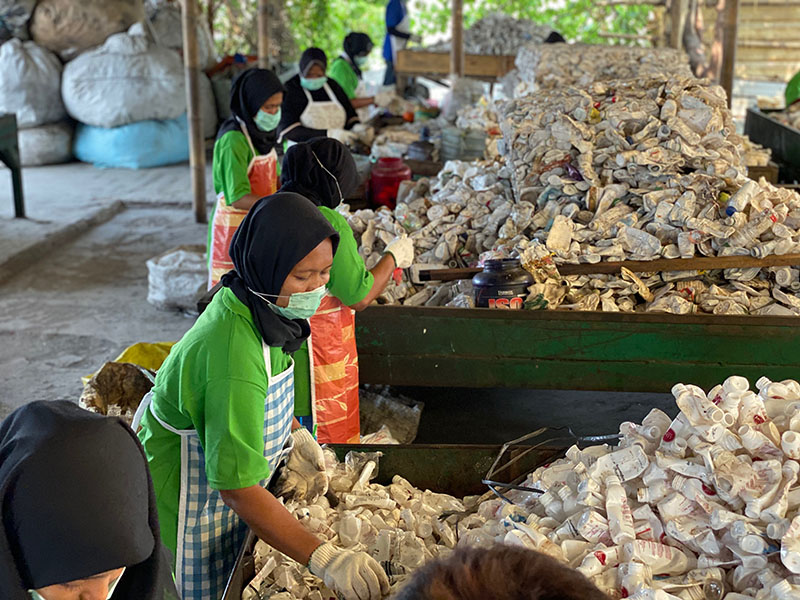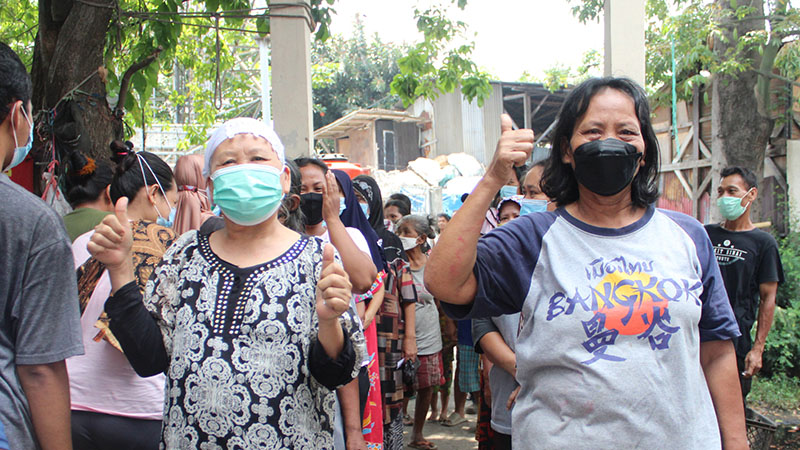Our Impact
Following the devastating 2010 earthquake in Haiti, an influx of plastic packaging from items like water bottles began to overwhelm local communities. While these resources were originally intended to help through relief efforts, Haiti lacked the proper waste management infrastructure to handle the plastic, causing clogged canals, rivers, and dirty beaches. This ultimately led to health concerns and an increase in waterborne illnesses such as cholera.

During this time, Robert Goodwin was visiting Haiti on a humanitarian mission and saw an opportunity: demonstrate the value of recycled plastic to local communities to create jobs and clean up the environment. He then began a multi-year quest to develop recycling collection infrastructure in the country.
Soon after, locals coined the saying “Ramase Lajan” or “picking up money” in Creole. They started to see plastic as a resource instead of trash. Parents were able to make a living by collecting and sorting plastic – providing for their families and allowing their children to stay in school.
Several years later Robert met Ryan Schoenike, who had been sourcing ocean-bound plastic from the Ramase Lajan network for consumer products. They eventually formed OceanCycle in 2017 to bring trust, transparency, and scale to the ocean-bound plastics market. OceanCycle developed a unique certification system that verified the collection of ocean-bound plastic and ensured that the material was ethically picked up.

Today, MillerKnoll is proud to work with many supply chain partners including OceanCycle, Polyvisions, and Polindo in partnership with Prevented Ocean Plastic Southeast Asia to source ocean-bound plastic, and support the livelihoods of individuals in Haiti, Indonesia, and other coastal communities.
“We recognized early on that having consistent and significant demand for ocean-bound plastic material would be critical to standing up a sustainable and reliable supply chain. At the same time, our goal was to make a meaningful impact on the communities that are most impacted by the plastic crisis,” said Amy Luthman, CMF Senior Portfolio Manager at MillerKnoll. “Along the way, we built a network of partners like OceanCycle, who rose to the challenge to help us make all of this possible.”

MillerKnoll Foundation supported OceanCycle in conducting social audits to reduce supply chain risk and identify areas of need in vulnerable collector communities. The need for safe drinking water systems and food rose to the top of the list. Through this support and partnership, we provided meals, water filtration systems, and training to local individuals that collect ocean-bound plastic, just east of Jakarta, Indonesia.

“As our use of ocean-bound material grows, so will our on-the-ground impact in these communities,” said Luthman. “By partnering with OceanCycle and others in our supply chain, we aim to make meaningful impact across the globe for both people and our planet.”
In September 2021, Herman Miller announced that its iconic Aeron Chair, textiles, and more would be made with ocean-bound plastic. By integrating this material into all these products and packaging solutions, Herman Miller estimates it will divert up to 234 metric tons of plastic from the ocean annually, equal to preventing close to 400,000 milk jugs or up to 23 million plastic bottles from entering the ocean annually1.
Read more about OceanCycle at oceancycle.co. Learn more about the work we’re doing with ocean-bound plastic on hermanmiller.com and learn more about MillerKnoll’s sustainability goals on millerknoll.com/sustainability.
1 Based on annual sales forecast
Photo credit: OceanCycle